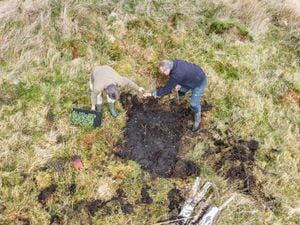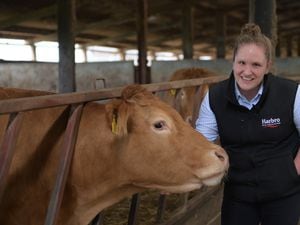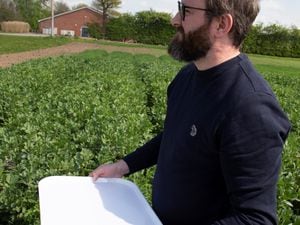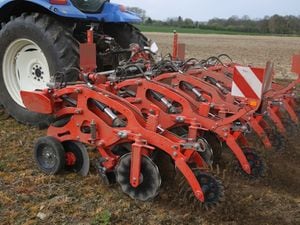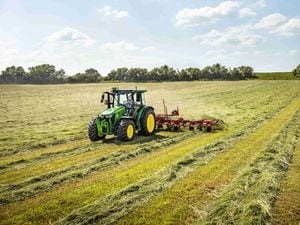Partnership helps Powys farming family tackle Johne’s disease cases
A Powys farming family has tackled the challenges of Johne’s disease by working closely with experts from a funding programme.
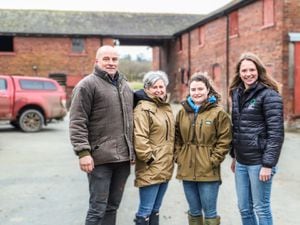
Regular testing and removing infected animals by Gary and Anwen Orrells and their daughter and son, Elin, 22, and 19-year-old Jonny, has helped reduce disease incidence from 16 per cent to zero in their beef herd.
The family farm a mixture of owned and rented land across 1,170 acres at Abermule, near Newtown, and Shropshire.
Blood testing for Johne’s is one of many services offered under the new Farming Connect programme, which the family have tapped into.
They have tested for wormer resistance in their sheep flock, monitored the nutrient status of farm soils, gained valuable skills and training and accessed other services too.
“The 140-head spring calving suckler herd of British Blue-cross and Aberdeen Angus-cross cows produces calves that are sold as 10–12-month-old stores.
Although sexed semen is now used to produce herd replacements, the business previously sourced bulling heifers from dairy farms.
This system had a significant weakness; after their first calving, some animals lost body condition and Johne’s was suspected as the cause.
In 2019, the Orrells family embarked on a blood testing programme with funding from Farming Connect. Samples revealed that of the 32 heifers tested, five were positive for Johne’s – a 16 per cent incidence rate. Those animals were sold as non-breeding stock.
After a subsequent annual programme of testing and removal, in 2023 there were no cases of Johne’s identified in the 31 mostly homebred heifers.
Gary says the support from Farming Connect has been invaluable.
“We have a great connection with our vets, they put us in touch with our local Farming Connect development officer, Elin Williams, and she signposted us to the blood testing service and other services too.’’
He said it is a relief that the high health status of cattle has been restored.
“We also have a small herd of pedigree Limousins so the health status on our farm as a package has to be perfect,’’ he added. That position applies, he said, to the closed flock of 1,200 breeding ewes too.
The flock consists of 500 Improved Welsh and 700 Aberfield ewes with all rams purchased through Innovis and the ProHill Scheme. There is also a small flock of pedigree North Country Cheviot ewes.
Gary admits he had “no inkling’’ that there could be an issue with drench resistance but when weaned lambs started to under-perform it was a red flag.
To establish if there was an issue, he embarked on a Farming Connect focus farm project, with faecal egg counts taken from fat lambs; these were sampled before drenching and also 14 days after treatment, to establish the efficacy of white, yellow and clear wormers.
This exercise showed that the white wormer reduced worm burdens by only 54 per cent but that it could be used effectively for nematodirus control. The other drenches were found to be effective.
The Orrells family now only use white drench in the spring to protect lambs against nematodirus.
Mixed grazing with sheep and cattle is also used as a tool for controlling pasture worm burdens.
Farming Connect discussion groups have been instrumental in helping the Orrells family shape their system.
Farming Connect has helped to nurture the Orells’ next generation too, by providing opportunities to gain valuable skills and training.
With up to 80 per cent funding from the Farming Connect Lifelong learning and Development programme, daughter Elin has completed a first aid course and gained a certificate in the safe use of medicines while Jonny has embarked on training in the safe use of pesticides which was funded by 40 per cent.
Farming Connect development officer, Elin Williams, said: “The work done here showcases that regularly evaluating and monitoring performance along with seeking advice and testing, when necessary, can lead to significant gains.
“I would encourage any business to get in touch with their local Farming Connect Development Officer to discuss their needs as some services could prove to be valuable and lead to improvements, as the Orrells family have demonstrated.’’
You can find pout more at businesswales.gov.wales/farmingconnect/contact-us/your-local-development-officer

